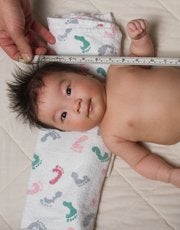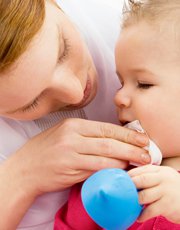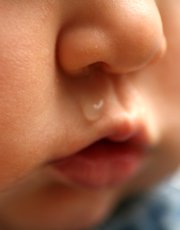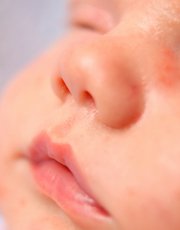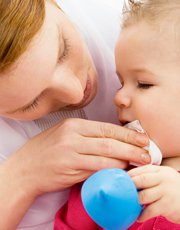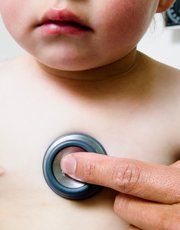
We believe breast milk is the best food for infants. When in consultation with their healthcare professional, mothers and families find that optimal breastfeeding is not possible due to their infant’s medical condition, formulas for special medical purposes play a vital role in providing essential nutrients to infants. We have a global commitment to market breast-milk substitutes responsibly.
This website is about the management of cows’ milk protein allergy and nutritional solutions intended for infants. By continuing on this website, you accept that Nestlé Health Science supplies the information at your own request.
Are you a healthcare professional (HCP) or a parent?
SYMPTOM: HIVES
What are baby hives?
Hives, much like in adults, are a common skin condition characterised by well-formed itchy welts and swelling of the skin surface. Hives can occur anywhere on the body but in infants, they are usually short-lived.
Symptoms of baby hives
Often, baby hives are mistaken for mosquito bites, but they can also be blotchy. They can form anywhere on your baby’s body or may also cluster in one area. The bumps sometimes come and go within a few hours, but hives can also linger for weeks or even longer.
Hives can cause itching and/or irritation. Whilst a mild case of baby hives is likely to be resolved within a few hours, occasionally, they can last longer and they can be accompanied by more serious symptoms that call for medical attention, such as anaphylactic shock.
What causes baby hives?
The most common cause of baby hives includes food allergens, such as a Cows’ Milk Allergy (CMA). Your baby may also experience hives from other allergies, such as insect bites/stings, medication or latex. A viral n infection, bacterial infection, or coming into contact with chemicals may also cause hives. A change in your baby’s environment can also trigger hives, such as being too hot.Could it be Cows' Milk Allergy?
Hives may be a common symptom for babies with CMA and may occur in almost 30% of CMA cases.
Babies with CMA usually experience more than just one symptom and these symptoms can be very different from one another.
If you think that your baby has hives, it may be CMA. You may have even noticed other symptoms (besides hives or swelling), which may affect other parts of your baby’s body.
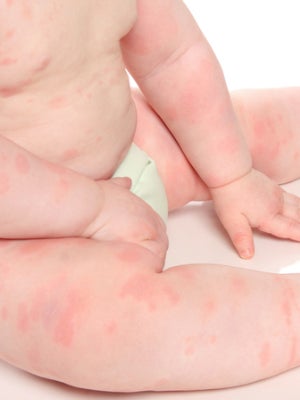
For a simple and easy way to understand the symptoms associated with CMA, you can use our symptom checklist or symptom diary to track symptoms.
This will allow you to select all the symptoms that your baby may have that may be cows’ milk-related. You can then discuss these with your doctor.
Treatments for baby hives
It's important for you to monitor your baby’s rash and contact your doctor before treating your infant with any medications. Most medications don’t have dosing instructions for infants. However, there are some home remedies that may help alleviate the symptoms of baby hives:
- Cool compresses - wet a compress with cold water and gently put directly on the rash to sooth the itching
- Comfortable clothes - loose fitting clothes are better for your baby when they have hives
- Trim your baby’s nails or put on baby mittens - this will prevent your baby making their rash worse or more irritated
- Keep your baby out of the heat - stay out of the sun and keep your baby cool on hot days
In any case, if you have any doubts or concerns about your baby’s health, you should always seek advice from a medical professional as soon as possible. The information on this website should not replace medical advice from a medical professional.







